Do you believe that Karma is a bi!ch? Instead of blaming your luck, learn what the signs of bad Karma are and what message they’re trying to impart!
If you think Karma is a divine tool to punish you for sneaking out to a party in your high school years by giving you a flat on your way to your first job interview, you might have a wrong notion of the laws of Karma!
Karma And Bad Karma
Karma is a concept found in ancient spiritual practices, such as Hinduism, Buddhism, and Jainism.
It refers to the spiritual or cosmic relation between cause and effect, where the actions (Karma in Sanskrit means action) of an individual have consequences that may affect their present and future lives.
If the action is good, it will bring good results, and if the action has done harm or performed with malicious intent, it will bring unfavorable consequences, for the doer!
Therefore, what we understand as Karma, is actually Karmic results. If you do good, you’ll have good Karma and if you do bad, you’ll have bad results of your karma.
Most importantly, according to Hinduism and the 12 laws of karma preached in Buddhism, our negative karma can follow us even after death, forcing us to take incarnation after incarnation to clear our Karmic Debt.
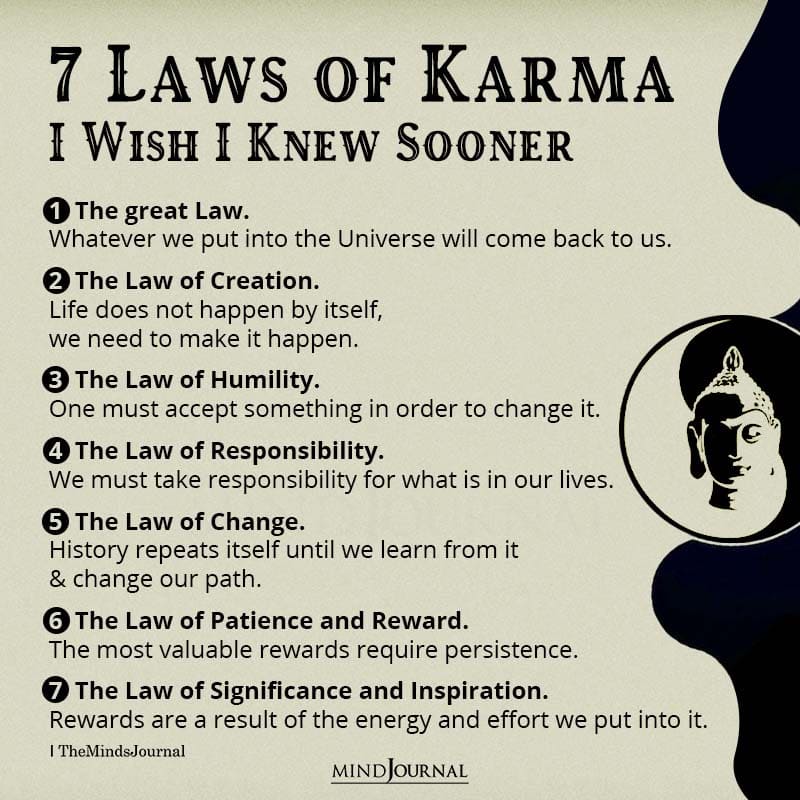
Karma is believed to be the conscience that governs the universe. According to this spiritual tenet, every action, thought, behavior, or speech, good or bad, will eventually lead to consequences corresponding with the nature of the energy that was put out in the form of words, actions, or thoughts.
Therefore it’s a divine justice system that teaches us valuable lessons and also rewards us for our good deeds.
But as good and bad are subjective concepts and might vary from one person to another, we often mix up negative Karma with what could be a simple bad turn of events or an undesirable coincidence!
That’s why it is important to understand and identify the signs of bad Karma. While Karma is certainly a complex and nuanced theme, there are certain signs that indicate that an individual has accumulated negative Karma, meaning, Karmic debt.
Let’s delve deeper into this and understand the signs of Bad Karma, not to feel anxious or sad, but to
- take an inventory of our life,
- recognize the areas where we need to work more,
- and most importantly, have an insight into the overpowering situations and repetitive patterns that we may find ourselves in!
Related: The 12 Laws Of Karma (That Will Change Your Life)
Signs Of Bad Karma
Here are some bad karma examples; the divinely orchestrated events and situations that signify you have earned bad karma:
1. Unfavorable Events and Circumstances
One of the most common signs is a pattern of unfortunate events and circumstances in an individual’s life.
This could manifest as a series of failures, disappointments, and setbacks that seem to follow you wherever you go! No apparent reasons.
It is important to note that not all negative events are necessarily the result of negative karma, as life is full of ups and downs.
However, if negative events seem to be happening repeatedly and consistently, it may be a sign that the individual has accumulated bad karma.
2. Chronic Illness and Health Problems
Another possible sign is a chronic illness and health problems. According to the law of karma, actions in past lives can manifest as health problems in the present life.
If an individual is experiencing chronic illness or health problems that cannot be explained by medical science, it may be worth considering the possibility that it is the result of negative karma.
3. Karma and Relationships or Karmic Connections
Relationship problems can also be a sign. This could manifest as a series of failed relationships or difficulties in maintaining healthy relationships. Understanding the karmic relationship meaning becomes vital here.
The law of karma suggests that past actions can influence the quality of relationships in the present life. If an individual is experiencing recurring problems in their relationships, it may be worth exploring whether it is a result of their past karma.
A sign of bad karma will be falling into karmic love and ending up in karmic relationships. Let’s try to define karmic relationships here.
As per the karmic relationship definition, such relationships are troubled and toxic and involve karmic partners who were destined to come into our lives to teach us valuable yet hard lessons on self-love, self-awareness, and self-improvement.

Related: 5 Reasons He Won’t Leave His Wife But Won’t Let Me Go
4. Financial Difficulties
Financial difficulties can also be a sign of bad karma. According to the law of karma, past actions can affect an individual’s financial situation in the present life.
This could manifest as chronic debt, difficulty in finding employment, or a pattern of financial instability. If an individual is experiencing recurring financial difficulties, it may be worth exploring whether it is a result of bad karma.
5. Negative Emotions and Mental Health Problems
Negative emotions and mental health problems can also be a sign of bad karma. This could manifest as depression, anxiety, anger, or other negative emotions that seem to be difficult to manage.
The law of karma suggests that past actions can manifest as mental health problems in the present life. If an individual is experiencing recurring negative emotions or mental health problems, it may be worth exploring whether it is a result of bad karma.
Can A House Have Bad Karma?
A house where tragic or violent events have taken place can have the trauma imprinted on its environment. It can have a negative vibe and also living in such a space can have unfavorable effects on the lives of the inhabitants.
Cleansing rituals like smudging, chanting, etc. can help to reduce or banish such negative energy.
Related: Wonderful Benefits of Smudging Your House, Backed By Science!
It’s A Great Leveler
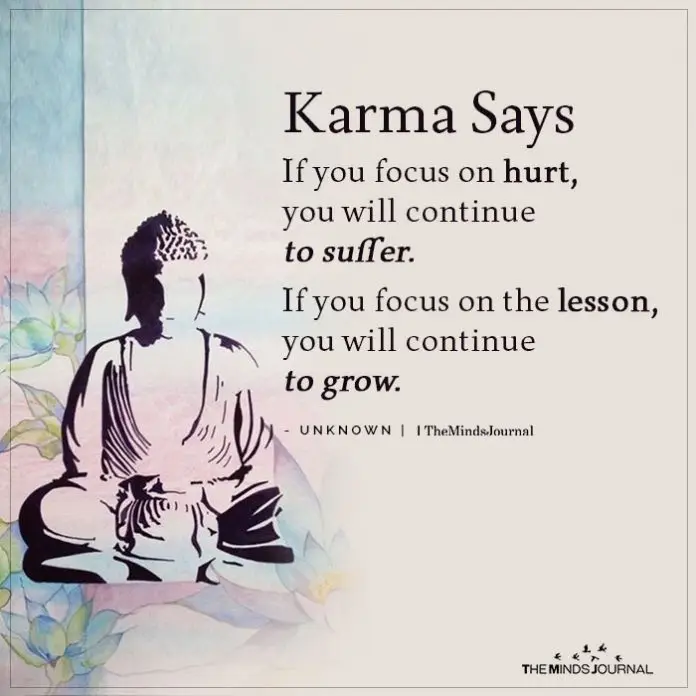
While these signs may indicate that an individual has bad karma, it is important to remember that karma is not a punishment but a natural consequence of actions. So, don’t fear karmic retribution, but see it as a justice system that upholds fairness and equality.
By taking responsibility for our actions and working towards positive change, it is possible to heal our bad karma and create a brighter future for ourselves and those around us.
We hope the above article cleared your doubts regarding the bad karma definition and concept. Comment down below to share your thoughts on the bad karma meaning and its significance.
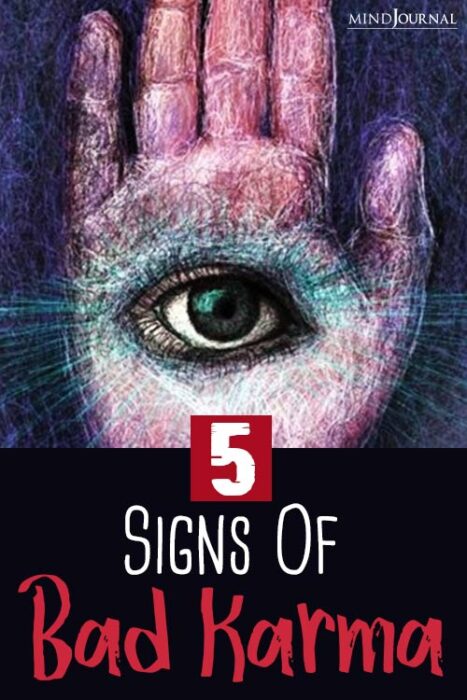
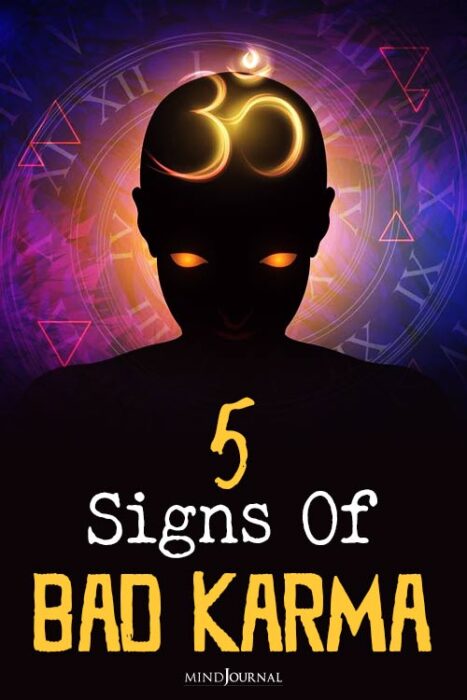
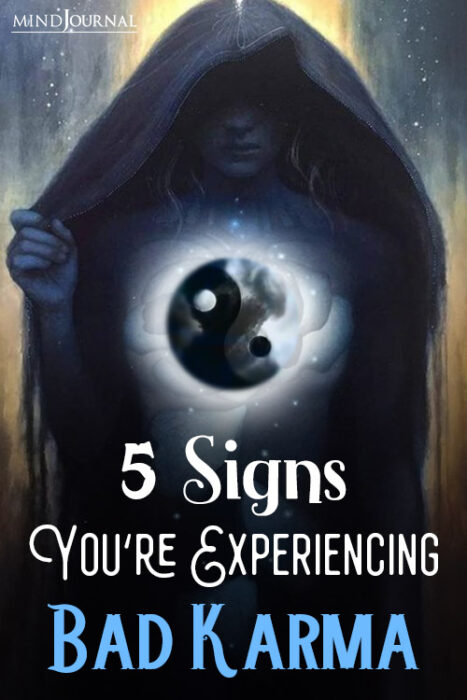



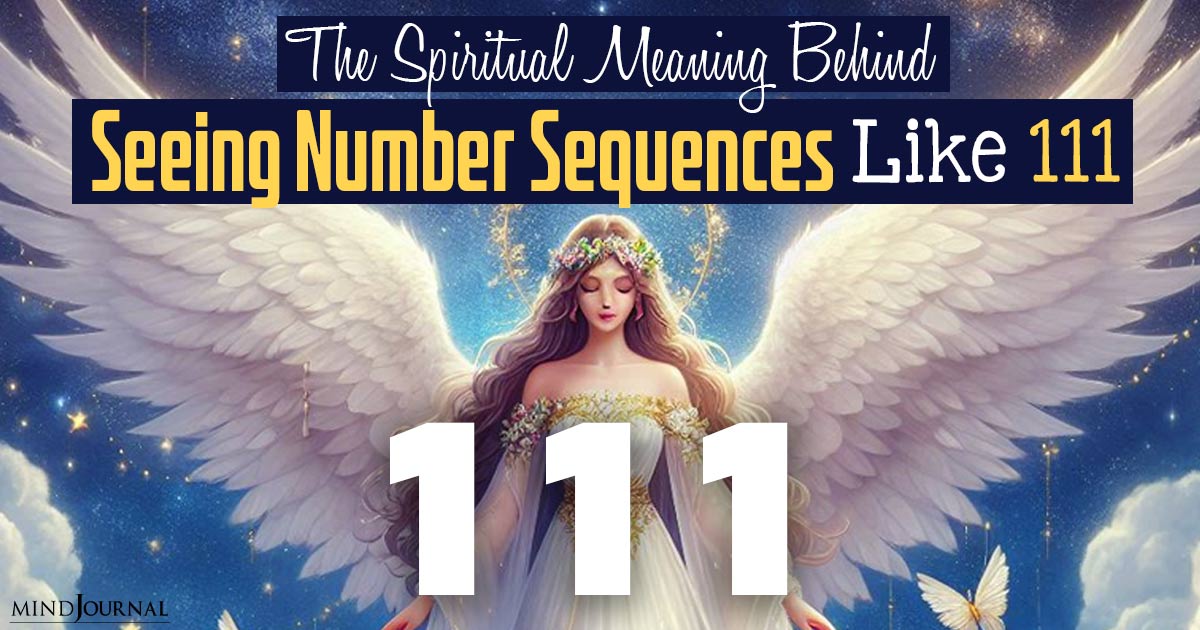




Leave a Reply
You must be logged in to post a comment.